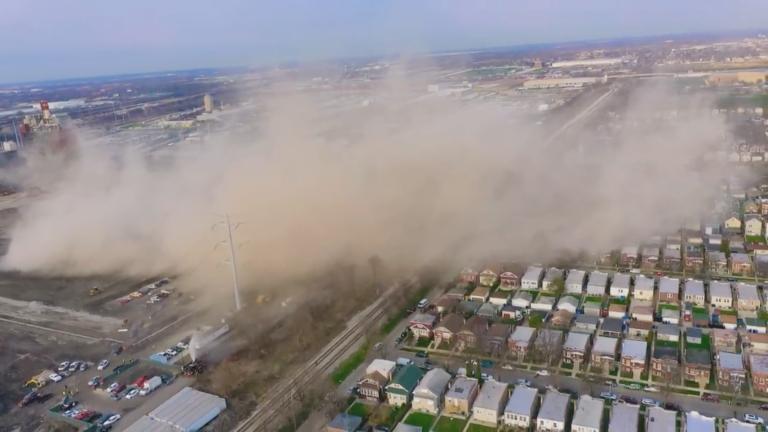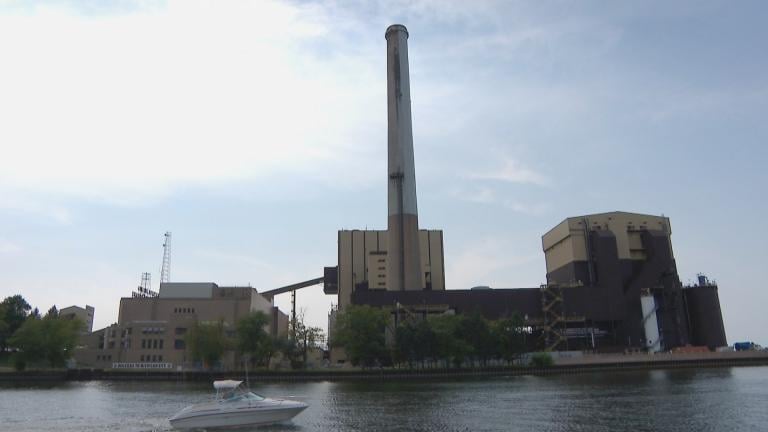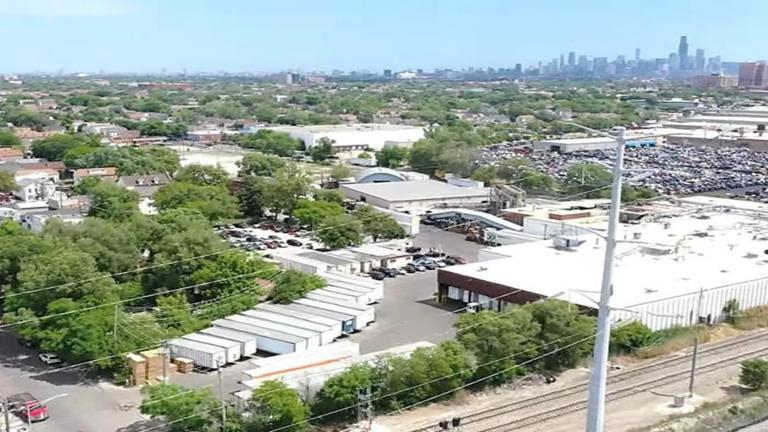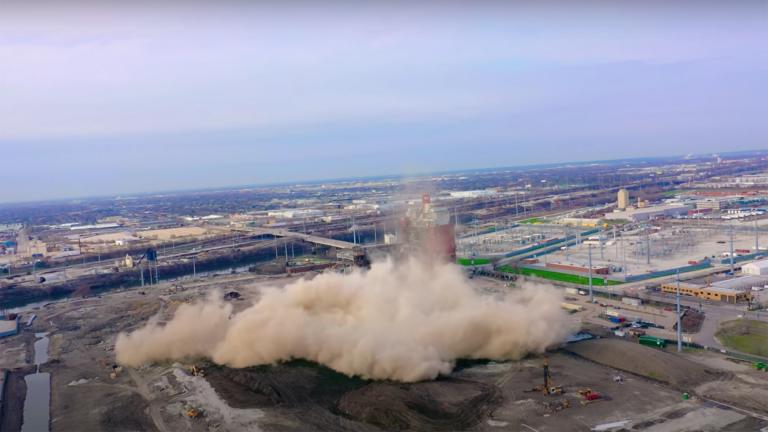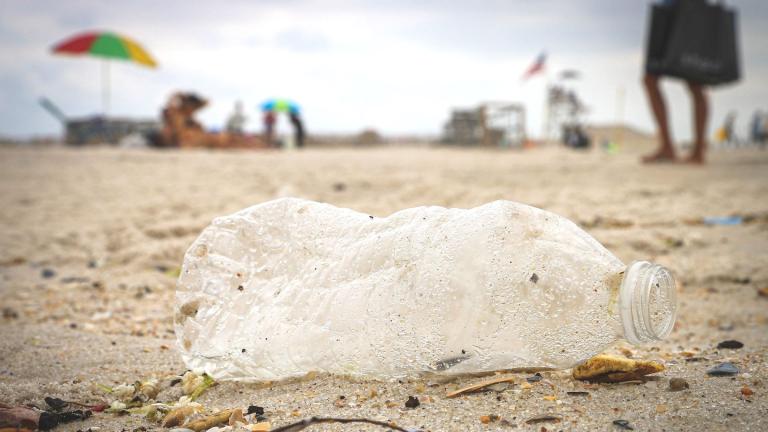This story was produced in partnership with students at the Medill School of Journalism at Northwestern University and WTTW News.
By: Sadie Caffry Frankel, Michelle Hwang and Lance Wilhelm
Since 1999, West Chicago residents have lived next to what many in town consider an unwelcome neighbor: the only waste transfer facility in DuPage County.
Groot Industries runs the operation, which some residents, like Julieta Alcántar-García, say brings unwanted pollution to the community.
“I feel we’re just targeted because we’re predominantly minority,” said Alcántar-García
West Chicago’s City Council and Mayor Ruben Piñeda approved the construction of a second trash facility in February 2023, which will be located just half a mile from the current facility.
Lakeshore Recycling Systems, or LRS, would run this second operation. The company already has a recycling facility in West Chicago. The facility’s final approval is pending a decision from the Illinois Pollution Control Board.
“Is what we’re saying important to our city government or not?” said Alcántar-García. “Are they here to represent us? Or are they here to represent corporations like LRS.”
Alcántar-García, 53, and her family have lived in her West Chicago home since she was 3 years old.
The house is about four miles from Groot’s trash facility and the proposed LRS expansion. Alcántar-García says she can often smell the garbage.
“We do get this gust of air that is not that pleasing,” she said.
A second trash facility would mean 650 additional tons of garbage will entering West Chicago each day, not to mention increased air pollution from diesel trucks.
Daniel Horton, an assistant professor at Northwestern University and the head of the Climate Change Research Group, believes the pollution is serious.
“One of the main pollutants that comes from diesel trucks is nitrogen dioxide,” Horton said. “Nitrogen dioxide has been linked to pediatric incidents all the way up to premature mortality.”
West Chicago has a nearly 50% Latino population. The proposed LRS facility would accept trash from nearby communities, such as Naperville and Wheaton. Those towns are predominantly White and wealthier. Alcántar-García sees the disparity.
“It’s sad because exactly that’s what LRS is going to do – bring all the recycling and waste from the towns where there predominantly are White people,” she said. “Wealthy people on top of that.”
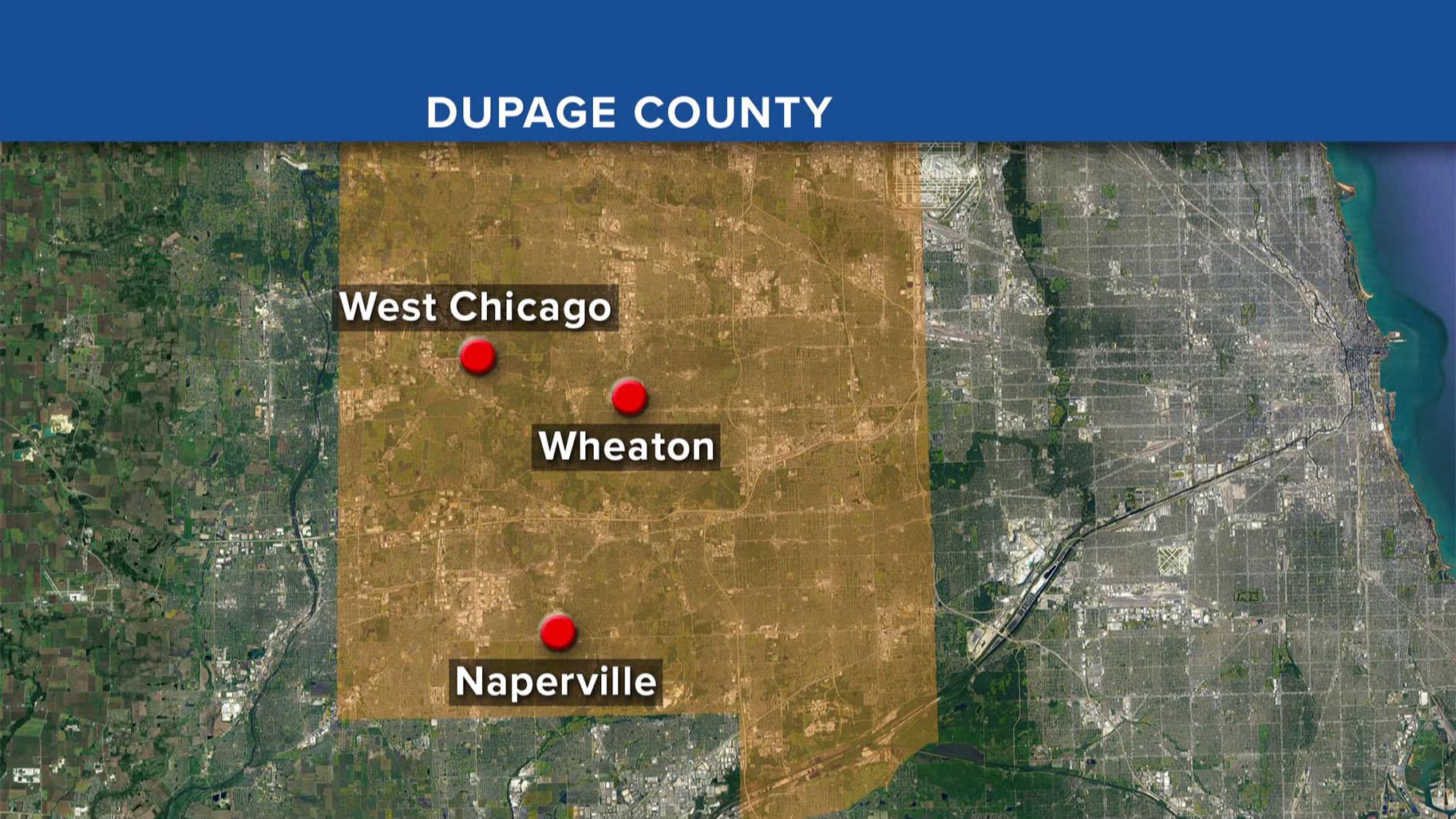 West Chicago would be home to the only two waste transfer facilities in DuPage County, under a proposal. (WTTW News)
West Chicago would be home to the only two waste transfer facilities in DuPage County, under a proposal. (WTTW News)
Some West Chicago residents are asking why their city has been chosen for another waste transfer facility, especially given the history of environmental problems in the area.
According to environmental advocacy attorney Robert Weinstock, West Chicago has struggled with radioactive contamination since World War II, as well as continuous diesel traffic from nearby industrial facilities.
“The problem here is structural environmental racism,” said Weinstock.
In March 2023, the group People Opposing DuPage Environmental Racism, or PODER, filed a petition against the new facility with the State of Illinois Pollution Control Board.
The group is working with Weinstock, who is Director of the Environmental Advocacy Center at Northwestern’s Pritzker School of Law, and his legal team from Northwestern, to stop the proposal.
“LRS has moved forward with this facility without really understanding that they were already operating in an area with unhealthy air quality and they would only be adding to the very type of pollution that is harmful to people in this community,” said Weinstock.
The petition includes data gathered by Alcántar-García indicating poor air quality in the area.
“What’s new here really is the real absence of any information addressing the localized air quality impacts and the fact that you actually have community members who are trying to stand up and speak out about it,” said Weinstock.
In addition to dismissing health concerns, PODER claims the West Chicago City Council did not provide residents an opportunity to advocate for themselves.
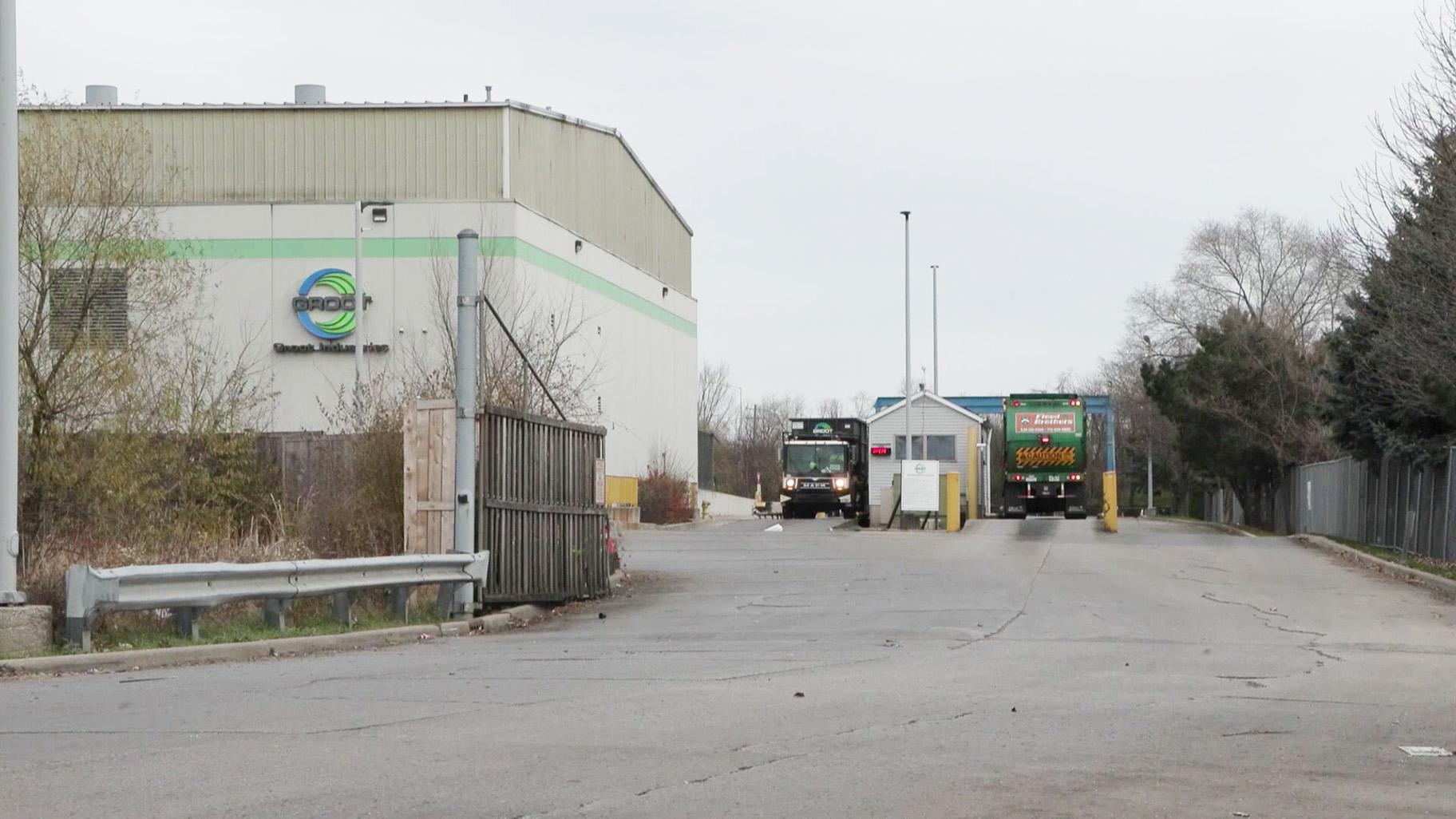 Groot Industries operates a waste facility in West Chicago at 1995 Powis Road.
Groot Industries operates a waste facility in West Chicago at 1995 Powis Road.
Law student Persis Tecknor-Swanson says some residents were treated unfairly by the process.
“There was no translation offered at the city hearings,” said Tecknor-Swanson. “None of the materials that had been posted online had been translated into Spanish, which meant that any citizen who wanted to meaningfully review any of these materials who spoke Spanish primarily, or who was more comfortable in that language, would not be able to.”
While LRS declined multiple requests for comment, at a September hearing, LRS attorney George Mueller said that PODER and others are was using the translation issue and claims of environmental racism to “…throw us into the cultural war.”
“You have to ask yourself would this have been proposed in a wealthier white community?” asks University of Chicago professor Raymond Lodato, who studies environmental racism.
“And if you can answer the question that yes, it would have, well then it probably isn’t an environmental racism issue,” Lodato said. “But most of the time you’re looking at it and saying no, there’s not. It wouldn’t even be proposed there, and it certainly wouldn’t be supported.”
The city of West Chicago declined to comment until the Illinois Pollution Control Board makes a final decision. Nothing can be built until the board approves the second facility.
Until then, Alcántar-García and other concerned residents say they will do everything they can to keep their community free from more pollution.
“We deserve better in our town,” said Alcántar-García. “We don’t deserve more pollution, more industry. We have enough.”

